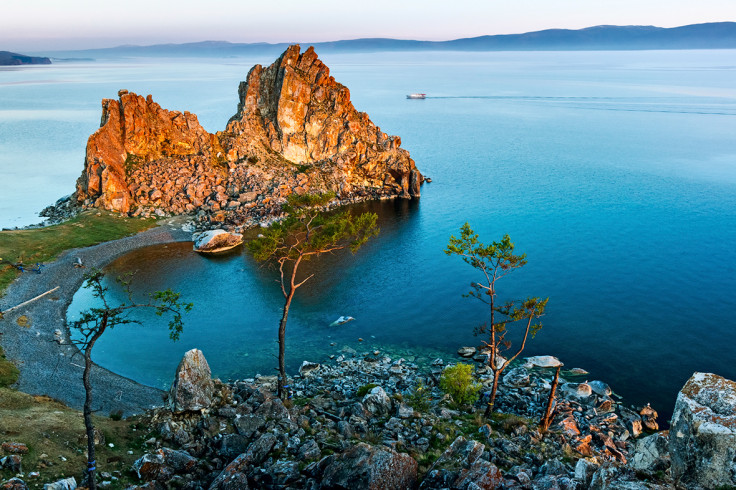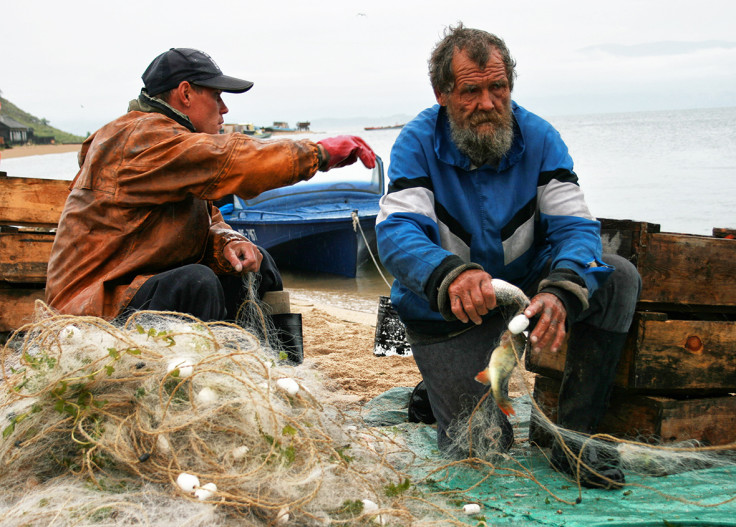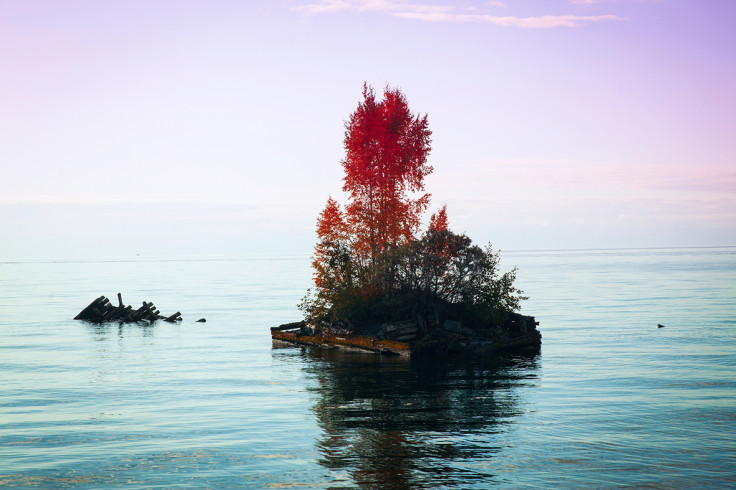Siberia: The world's deepest lake is being destroyed by putrid algae, poaching and pollution
The amount of omul fish has halved over the last 15 years, in a lake that holds one-fifth of the world's unfrozen fresh water.

Siberia's Lake Baikal, the world's deepest inland sea and a major international tourist attraction, is being crippled by a series of mysterious ecological attacks, say experts.
The Russian lake holds one-fifth of the world's unfrozen fresh water and is regarded as a natural wonder of "exceptional value to evolutionary science", according to Unesco.
The body of water has an extraordinarily high biodiversity that includes over 3,600 plant and animal species, most of which are endemic to the lake.
But in recent years the lake has been gravely damaged by a series of detrimental phenomena, much of which continues to baffle scientists.
The problems include the disappearance of the locally important omul fish, the rapid growth of putrid algae and the death of endemic species of sponges across its vast 3.2m-hectare (7.9m-acre) area.
This month the Kremlin introduced a ban on all commercial fishing of omul, a species of the salmon family only found in Baikal, fearing "irreversible consequences for its population", the Russian fisheries agency told Agence France-Presse.
"The total biomass of omul in Baikal has more than halved since 15 years ago from 25 million tonnes to just 10 million," the agency said.
Local fishery biologist Anatoly Mamontov said the decrease is likely caused by uncontrollable fish poaching, with extra pressure coming from the climate.
"Baikal water stock is tied to climate," he said. "Now there is a drought, rivers grow shallow, there are less nutrients. Baikal's surface heats up and omul does not like warm water."
Declining fish stocks
Unesco last month "noted with concern that the ecosystem of the lake is reported to be under significant stress" and a decrease in fish stocks is just one observable effect.
The Baikal omul, a well-known speciality, was for centuries the main local source of food, eaten salted or smoked, and especially important given the region has no farming.

Another peril to the lake's ecosystem is the explosion of algal blooms unnatural to Baikal with thick mats of rotting Spirogyra algae blanketing pristine sandy beaches, which some scientists say indicates that the lake can no longer absorb human pollution without consequence.
"I am 150% sure that the reason is the wastewater run-off from towns without proper sewage treatment, particularly of phosphate-containing detergents," said Oleg Timoshkin, biologist at the Russian Academy of Sciences' Limnological Institute in Irkutsk.
Fifteen years ago, some of the lake's picturesque villages had only two hours of electricity a day, but now improved power access means that "every babushka rents out rooms and has a washing machine", he said.
Government priority
Indeed the lake, which is 1,700 metres (5,580 feet) deep, and its tourism now provide a livelihood for many residents to replace fishing.
Foreign visitors often spend time at Baikal while doing a trip on the Trans-Siberian Railway. In recent years more Chinese have been coming as Russia eases visa requirements.
Russians love the area, too, for its hiking trails, camping and spectacular scenery.

But Timoshkin warned if dumping polluted water into the lake doesn't stop, "shallow coastal zones will change severely". The scientist called for a ban on phosphate-containing substances in the region and fresh construction to build "the best sewage treatment plants in Russia".
President Vladimir Putin in August complained of "extremely high pollution" while visiting Lake Baikal, calling its preservation a "government priority".
The government is also putting 26bn rubles ($452m, €385m) into a cleanup programme, which started in 2012, to fund treatment facilities, though local experts say much of the money gets wasted.
In one town, Babushkin, on Baikal's shore, millions of dollars were spent on a brand new treatment plant but bacteria meant to purify the water failed to work in the Siberian winter, local media said.
Critics add that science funding in Russia has grown thin at a time when studying the curious combination of factors eating away at one of the world's great natural resources has never been more vital.






